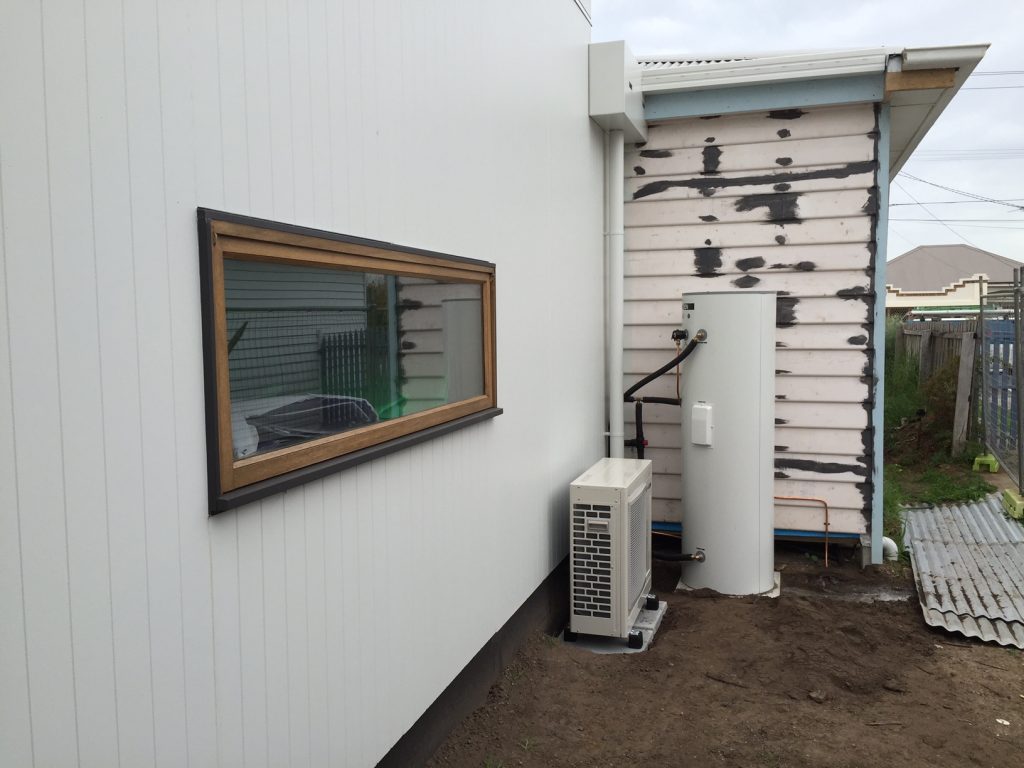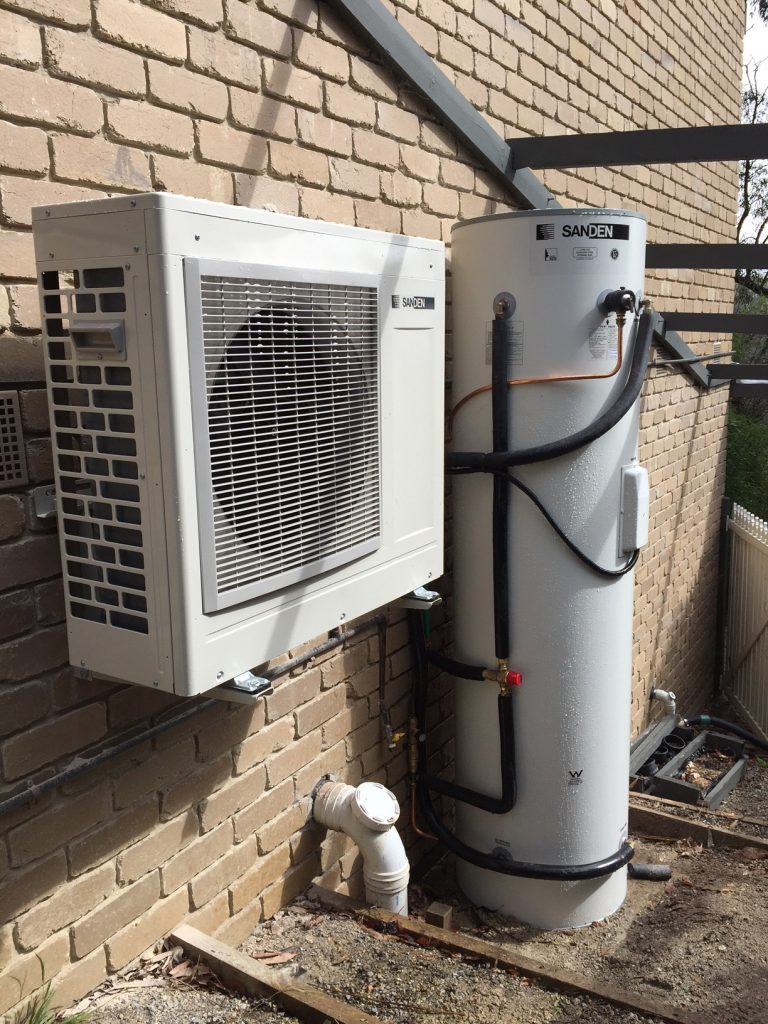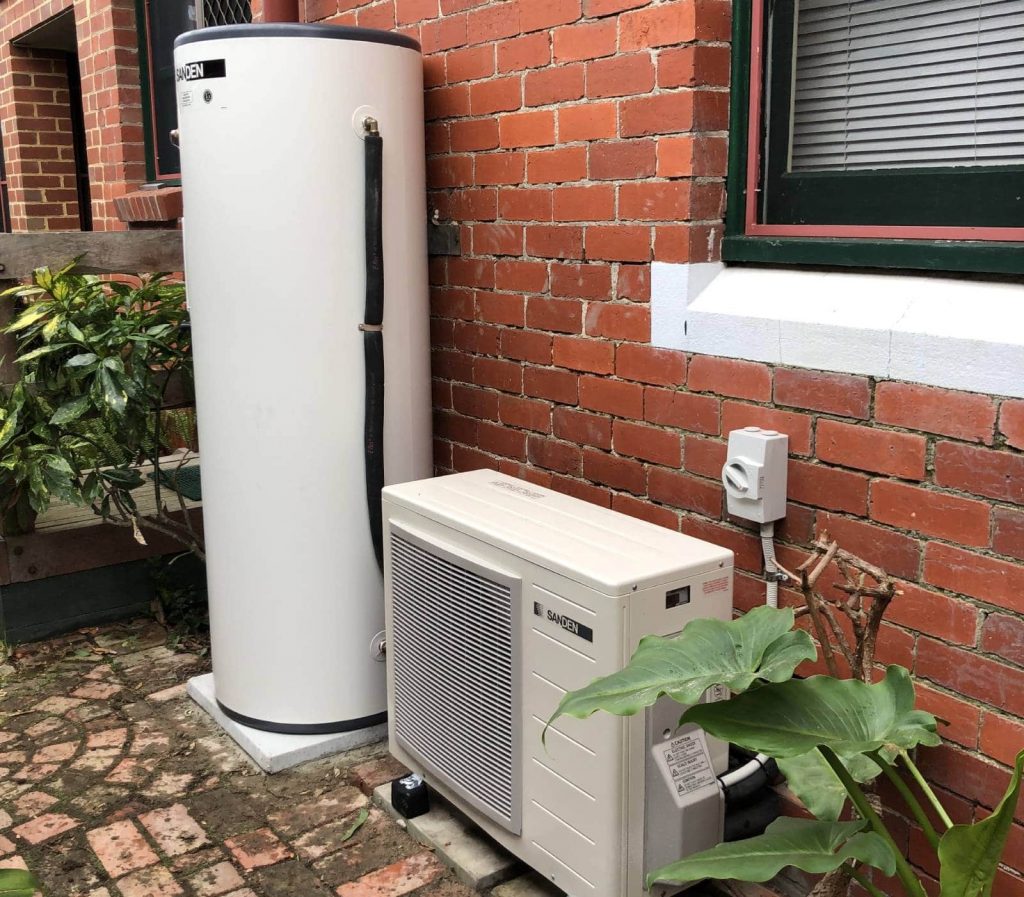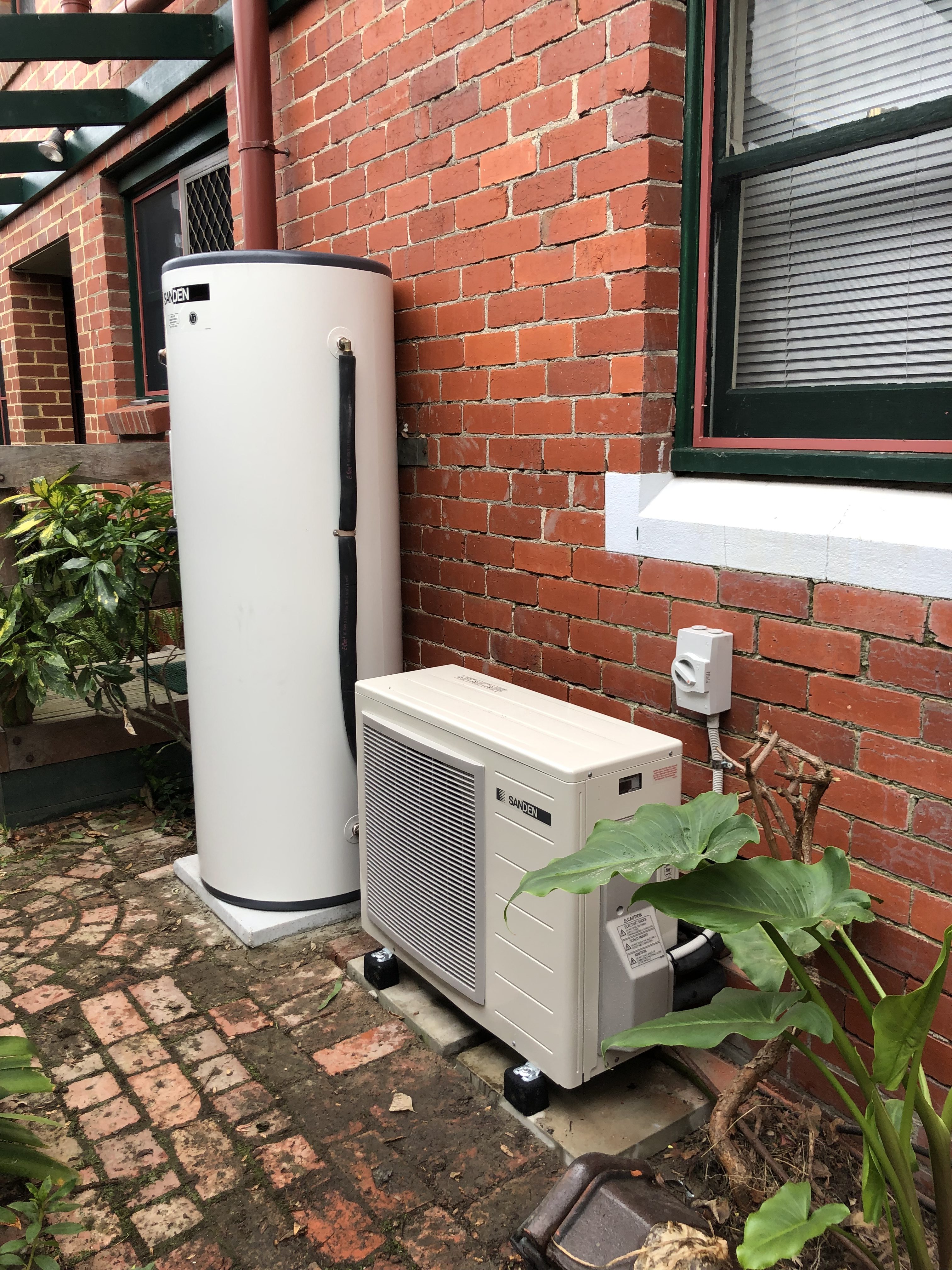
Do you ever ponder how heat pumps contribute to fighting global warming? Both cost-effective and environmentally friendly heat pumps are rising in popularity as the world shifts fast towards renewable energy.
This article will discuss the environmental benefits of heat pumps and how they can aid in cutting down on carbon dioxide emissions.
Heat pumps are a green and cost-effective way to heat or cool a building since they draw their power from renewable sources like the air, water, or ground. In addition, because they move heat from one location to another, these systems are significantly more efficient than those that use electricity or fossil fuels to generate heat or cool air.
Because of this, heat pumps are a great option for those concerned about their environmental impact.
What Are Heat Pumps?
Heat pumps are not heat sources like the furnace or air conditioners but rather a means of transporting heat from one location to another.
Like a refrigerator, a heat pump employs the ideal gas law to cool and heat a home without needing an external energy source.
Heat pumps come in a few varieties, but they all serve the same purpose: to transfer heat from an external source into a residence and vice versa when cooling is required.
Heat Pumps Are A Good Climate-Friendly Alternative To Traditional Heating And Cooling
Home heating and cooling accounts for a significant portion of the average person’s daily energy use. Depending on the setup, climate control in the home might account for up to 50 per cent of an individual’s total carbon footprint.
Heat pumps are one alternative climate option that may provide a more environmentally friendly means of heating and cooling your home.
Is it possible for climate change to benefit from this innovative approach to temperature regulation?
Do Heat Pumps Have A Future In The Fight Against Global Warming?
It is vital to compare the efficiency of heat pumps to that of more conventional heating and cooling systems while doing so. If a heat pump can’t effectively heat or cool your home, it’s not a practical solution to global warming.
However, heat pumps have been demonstrated to be an efficient and cost-effective heating and cooling option in various climates.
Heat pumps may not be ideal if you reside in an area with harsh weather patterns.
For instance, if you live somewhere that gets hot in the summer, a heat pump will only do a little to improve your quality of life at home.
The same is true of regions where winters are exceptionally harsh.
In addition, heat pumps are less efficient than other technologies because they can only transfer heat between an indoor and outdoor space. This is why heat pumps work best in temperate regions.
Heat pumps save 70% in GHG emissions compared to conventional heating and cooling systems.
Due to the absence of a heat source, this strategy can be used to resist climate change in the comfort of one’s own home.
Find a place to call home where the temperature rarely dips below freezing or rises over 100 degrees.
When it comes to environmentally friendly home heating and cooling, heat pumps might be an excellent choice. Heat pumps are more cost-effective and better for the environment in the long run.
Heat pumps are a fantastic replacement for conventional home heating and cooling systems in terms of efficiency and environmental impact.
How A Heat Pump Works
To chill your home, a heat pump employs the same refrigerant-based technology as a conventional air conditioner. A heat pump can cool and heat your home; the only real difference is that the former has a reversing valve.
A heat pump’s heating mode is similar to an air conditioner’s cooling mode, except that the refrigerant generates heat.
The operation of heat pumps can be broken down into the following steps:
- Outdoor air or earth heat are two potential heat sources. This is circulated by blowing or pumping it across the heat pump’s external heat exchange surface.
- The liquid refrigerant inside the heat pump will evaporate at these temperatures and become a gas.
- A compressor is then used to increase the pressure on this gas, which in turn causes a temperature rise.
- The warmed gas is directed through an internal heat exchange. This warm air can be distributed throughout the house, or the energy can heat water for showers and baths.
- The gas cools as it transfers heat into the house and condenses back into a liquid.
- Once the desired temperature has been reached, reverse refrigeration will begin again.
What Are The Different Types Of Heat Pumps?
Heat pumps can either draw heat from the air or the earth.
There is also a type of heat pump called a “hybrid” that combines a conventional heat pump with a fossil fuel gas furnace.
How Exactly Does A Heat Pump That Uses Air To Generate Heat?
To raise the temperature, an air-source heat pump uses ambient air as a heat source. The most prevalent types of air-source heat pumps are air-to-water and air-to-air models.
- Air-to-water heat pumps, which use the air outside to heat water for a central heating system, are an alternative to conventional gas furnaces. It may be essential to replace the conventional furnace or boiler with larger radiators or underfloor heating in order to make the most of the heat. Air-to-water heat pumps may be most effective in new builds and energy-efficient dwellings.
- Air-to-air heat pumps use fans to bring warm outside air into the house. The heating system can be used, but no hot water can be produced by it.
A Ground-Based Heat Pump: How Does It Operate?
With a ground-source heat pump system, fluid is circulated through underground pipes to transmit heat energy from the earth’s surface. The heat pump then puts that extra heat to use heating a home or providing domestic hot water.
It is installed in place of a conventional central heating system’s furnace or boiler, instead of using fossil fuels to generate heat.
A ground-source heat pump system consists of an above-ground heat pump and a ground loop, a network of subterranean water pipes; the size of the loop is determined by the square footage of the home and the heating needs.
Using a ground loop to circulate water and antifreeze helps harness the earth’s inherent heat. The water mixture is squeezed, and the extracted heat is sent to a heat exchanger and ultimately the heat pump. The warmth produced can subsequently be used by your home’s heating system.

This warmth is useful for heating water, operating radiators, and warm floors.
How Does A Hybrid Heat Pump Function?
You can use a heat pump in conjunction with your existing gas furnace or boiler, or perhaps a hydrogen boiler in the future, to create a hybrid heat pump system.
A hybrid heating system may automatically transition between several heating sources to keep your home at a pleasant temperature and your water at a consistent temperature, regardless of the outside temperature.
The Efficiency Of Heat Pumps
Heat pumps are advantageous since they are very efficient heating systems. Since air source heat pumps only move existing heat around, their efficiency can easily surpass 300%.
To maximise heat pump efficiency, set your home’s flow temperature (the temperature at which water runs through your radiators) lower than the temperature at which you prefer to keep your rooms.
Because the heat pump doesn’t have to work as hard to heat your home when you have huge radiators and underfloor heating, the efficiency of your system improves.
Efficiency Evaluation Of Heat Pumps
The Coefficient of Performance (CoP) of a heat pump indicates how effectively the system will heat your home under ideal conditions. Heat pump efficiency can reach a maximum of 4 on this scale.
This means that heat pumps can generate four times as much heat as the electricity they consume.
In perspective, even the most modern oil and gas boilers only run at around 90% efficiency. In comparison, electric heaters can reach efficiencies of up to 100% (1 unit of electricity creates 1 unit of heat).
Efficiency Ratings Of Heat Pumps
The problem with using CoP values to compare heat pumps is that they only demonstrate efficiency under ideal conditions, leading to unreasonable expectations of heat pump performance.
Air source heat pumps lose efficiency (occasionally to approximately 1.5 CoP) as the outside temperature drops in the winter, requiring more electricity to maintain the same indoor temperature.
When evaluating heat pump efficiencies, the Seasonal Coefficient for Performance (SCoP) is by far the most informative metric. Because it takes seasonal variation into account, the SCoP is indicative of heat pump efficiency.
How Heat Pumps Affect The Environment
Noise Pollution
The fact that high-efficiency heat pumps can be rather noisy is a deterrent for some consumers.
This can be an issue if you live in a city or a quiet suburb with stringent noise regulations.
Even conventional air conditioners might need to be revised in areas with stringent noise regulations.
If you value efficiency and want a quiet heating and cooling system, ductless heat pumps are a great choice.
In addition, they may be installed in tight quarters because their footprint is substantially smaller than that of conventional heat pumps.
Compressor Problems
There is a refrigerant in every HVAC system and heat pump.
The refrigerant is more effective than water or other liquids at heat exchange, but its emission into the atmosphere can negatively affect the environment.
Although it is safer than the chlorofluorocarbons (CFCs) it replaced, this refrigerant is 1,900 times more damaging to the environment than the same quantity of CO2 when emitted.
Even though heat pumps are supposed to be leak-proof, some older models have been known to spring a leak over time. If your heat pump has a refrigerant leak, it won’t be able to cool or heat your home as efficiently, so you’ll spend more money on utility bills.
Regular maintenance on your heat pump can detect any leaks in the refrigerant and fix them before they become a problem.
Many minor issues can be prevented from becoming major disasters by scheduling service once or twice a year.
Efficient Use Of Energy
Not just the heat pump but all of your home appliances can benefit from this. Replacing any inefficient HVAC components with newer, more energy-efficient models is important.
Energy costs to cool or heat a home with an older unit are higher.
Check the Energy Star rating on your heat pump and other appliances. Because they save energy use by at least fifteen per cent, the FDA has given its stamp of approval. Your windows may even have an Energy Star label.
Single-pane windows, common in older houses, are less effective at retaining heat or cold than double- or triple-paned ones.
Pollution From Carbon Dioxide
Most contemporary heat pumps are powered by electricity.
Therefore, they produce far less carbon dioxide than traditional heating options like oil, natural gas, or pellets.
One option to reduce your negative environmental impact is to replace your fossil fuel–powered heat pump with an electric one.
Using renewable energy to power your home or heat pump greatly reduces your carbon footprint.
On cloudy or windless days, you may have to rely on your community’s electricity infrastructure to provide for your home’s heating and cooling needs.
When your heat pump is working harder, such as during the warmest days of summer or the coldest days of winter, its carbon footprint will increase. However, a modern heat pump that operates on electricity will have a far smaller carbon footprint.
By using electricity from renewable sources, efficient heat pumps offer a cleaner and more economical way to maintain indoor comfort year-round. ones worried about their effect on the environment will be relieved to learn that they are more efficient than ones that rely on electricity or fossil fuels to produce heating or cooling.
While heat pumps are a great environmentally friendly alternative to more conventional heating and cooling methods, they may not be practical in regions with very severe climatic extremes.
In this piece, we’ll look at how heat pumps can help the planet by reducing our reliance on fossil fuels and other harmful emissions.
Heat pumps are a fantastic choice for those looking for a greener way to heat and cool their homes.
They employ the same refrigerant-based technology as standard air conditioners, but their GHG emission reduction is achieved by the installation of a reversing valve.
They can pull heat from the air or the ground, making them useful for both cooling and heating a home.
They can be used to counteract the effects of climate change at a reduced cost and with less environmental impact.
In order to generate heat, heat pumps draw heat from the surrounding air.
Unlike ground-based heat pumps, which transfer heat energy from the earth’s surface using fluid flowing through underground pipelines, air-to-water heat pumps directly transfer heat from the outside air into the home using fans.
Heat pumps that use a fossil fuel gas furnace are called hybrid heat pumps.
Unlike ground-based heat pumps, which transfer heat energy from the earth’s surface using fluid flowing through underground pipelines, air-to-water heat pumps directly transfer heat from the outside air into the home using fans.

There are hybrid heat pumps that can switch between different heating sources automatically to maintain a comfortable indoor temperature and a constant water temperature regardless of the weather outside.
Up to 300% efficiency is possible with an air source heat pump.
Reduce the ideal temperature and increase efficiency by lowering the home’s flow temperature.
How well a heat pump heats a home under optimal conditions is measured by its Coefficient of Performance (CoP). When gauging heat pump effectiveness, the Seasonal Coefficient of Performance (SCoP) is the most useful indicator.
Ductless heat pumps are an excellent option because they don’t have the noise or environmental impact of traditional heat pumps. Damage to the natural world can result from malfunctioning compressors.
Heat pumps need to be serviced regularly to prevent energy waste and leakage.
Energy expenses and carbon dioxide pollution can be lowered by upgrading outdated HVAC equipment with newer, more energy-efficient versions.
Since electricity is used to power today’s heat pumps, they emit significantly less carbon dioxide than other forms of heating. When the weather is less than ideal, people can still stay warm or cold by tapping into the local power grid.
